Tags: Antarctica
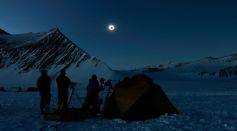
Solar Storm That Hit 9,200 Years Ago Scarred Greenland, Antarctica [Study]

Scientists Use AI to Find Meteorites Left Undiscovered, Over 300,000 Space Rocks Possibly Hidden in Antarctica
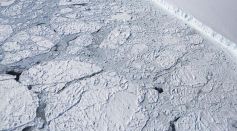
Iceberg A-68 Releases Billions of Tons of Water in South Georgia Islands; 4 Tourist Hotspots at Risk of Being Submerged by 2030
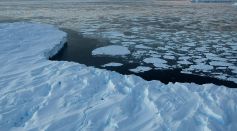
Martian Meteorite In Antarctica: New Study Debunks NASA, Bill Clinton's Claim Over Organic Compound in Mars
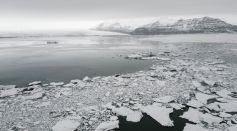
Icefish Colony Found in Antarctica's Weddell Sea; The World's Largest with 60 Million of the Said Species

Martian Meteorite Found In Antarctica: Organic Compound in Mars’ ALH 84001 Not Biological?
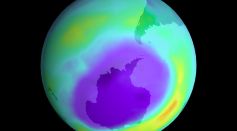
Large Hole Created in the Ozone Layer More Massive Than Antarctica Finally Set to Close This Week
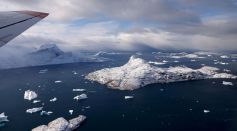
Climate Change: Thwaites Glacier Ice Shelf In Antarctica Could Break In 5 Years Result In Sea Level Rise, Scientists Warn
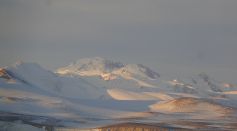
Airborne Hydrogen Extraction Technique for Fuel, First Used by Bacterias in Antarctic
Paleo-Fires Common in Antarctica 75 Million Years Ago, Burned Parts of Forests Home to Angiosperms
13th Century Arrival of Māori People Found Frozen in Antarctic Ice Core; Researchers Link Fires, Volcanic Eruptions to the Finding
Icy ‘Glue’ Making Antarctica Intact Begins to Break; Scientists Investigate Reason for Accelerated Melting
Life Beneath the Ice: Short Film Showcases a Magical Portal Full of Antarctic Jellies
Ozone Hole Forming Each Year Over South Pole Presently Larger Than Entire Antarctica; Report Says It's Due to Depletion
Geothermal Activity Under Antarctic Ice Sheet Bring Thwaites Glacier on Brink of Collapse Due to Excessive Melting
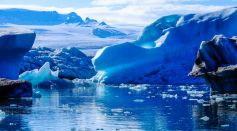
Carbon Dioxide Decline 34 Million Years Ago Caused Earth's Drastic Climate Transition and Formation of Antarctica
NASA ICESat-2 Space Lasers Predicts Chronic Melting, Maps Meltwater Lakes in Antarctica
Ice Shelf Protecting Antarctica’s Largest Glacier Is Breaking Quickly to Pieces [WATCH]
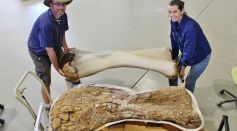
Australotitan Cooperenses: Largest Dinosaur Species Bigger Than Antarctic Blue Whale Discovered
Maori, Possibly the First Humans to Travel to Antarctica 1,000 Years Before Russian Expedition
Most Popular

Relativity Time Dilation Explained: The Physics of Time and Why It Moves Differently in Space

How Lightning Science Reveals Why Charged Storms Are Rising with Global Warming Effects

How AI Is Used in Weather Prediction: Smarter Forecasting Through Machine Learning

De-Extinction vs. Conservation Science: Which Approach Protects Biodiversity Most Effectively?





